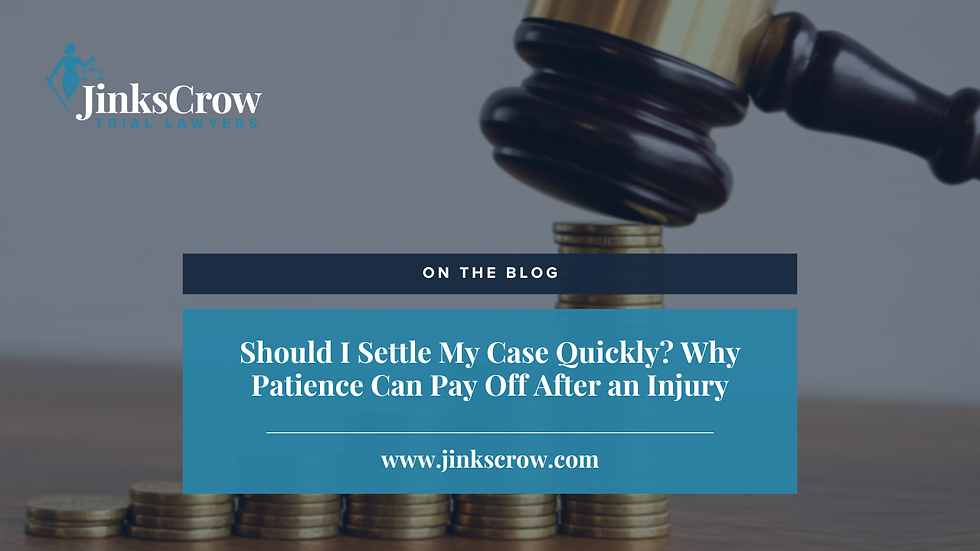Distracted Driving Accidents & Wantonness
- Jinks Crow

- Sep 23, 2021
- 2 min read

In a previous blog titled "Distracted Driving & Rules of the Road," we wrote about how distracted driving inevitably leads to a violation of the Rules of the Road. In this blog, we want to discuss how texting and driving may result in the commission of the tort of “wantonness.”
Wantonness is a legal concept that is also a recognized cause of action. It requires an act on the part of a person which was made with reckless indifference to the consequences.
Wantonness requires a state of mind where a person is aware that his or her conduct would likely result in injury to another person. It is a reckless disregard toward others with regard to known perils over which one has control.
Let’s consider how distracted driving results in a violation of the rules of wantonness.
We all know from everyday experience that if we are texting while driving we are not looking at the road as we should be. We are also aware that if we strike another car or person while doing this serious injury or death could result. Think about it. People are injured or killed in an accident because the forces of the crash caused damage to the body. Newton’s second law of motion, which accident reconstruction experts still use, teaches the computation of force is a simple formula: Force = Mass X Velocity. The average car weighs 2871 pounds. At 55 MPH if an object with that much mass strikes another object or person, the amount of force that results cannot be survived by a human being. So when we drive a vehicle in such a reckless way we are disregarding the deadly results.
Committing the tort of wantonness has significant legal ramifications.
In a case of ordinary negligence, Alabama law states that the contributory negligence of the opposing driver is a complete defense in court. The contributory negligence of the Plaintiff is not a defense in the case of wantonness. Another recognized defense in cases of simple negligence is the assumption of the risk. This is not a defense to a claim of wantonness. In cases where the distracted driver is driving a company truck, if he commits a wanton injury, both he and his company are liable to the victim. If a person commits the tort of wantonness because of his distracted driving the Plaintiff can recover both compensatory damages and punitive damages.
%20Proof%20%235.png)



Comments